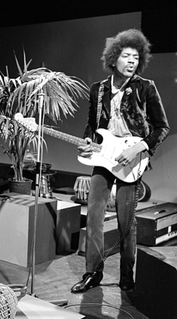A Quote by Jules Feiffer
When I write a play, my whole intent at bottom is to get the audience to be in the cast, to get that audience on stage with the actors and to get them thoroughly involved in what's going on.
Related Quotes
In film, the camera can get an array of shots so the audience can see the emotion the character is giving off. Using close-ups on the character's face really helps get the message across. On stage, you can't do that. But the stage has that live feeling that you can't get anywhere else because the audience is right there.
In film, the camera can get an array of shots so the audience can see the emotion the character is giving off. Using close-ups on the characters face really helps get the message across. On stage, you cant do that. But the stage has that live feeling that you cant get anywhere else because the audience is right there.
The next time I write a play - in order to get audience trust for a particular sort of tragic line, I'll try to bring the audience a good distance before that. Part of that is allowing comic moments to occur. I had been afraid of that - that once the audience started laughing in the play, they would never stop.
I have a lot of friends who were stand-ups, and they just stopped after a while, because they didn't like that battle, or they just couldn't do it. And then they would get on a sitcom and get visible and get back into it, because the audience was just way easier on them. But they lost those crucial years of learning to turn any audience into your audience.
The big difference I think between tv and stage is definitely the immediate buzz that you get. And that's not just as an actor, as an audience member you're getting the chance to have this kind of two-way process where the actors and the audience are experiencing the same thing. With tv you often have to wait months and months down the line to actually get the pay-off. Whereas with theatre it's a very immediate thing.
I don't have an audience in mind when I write. I'm writing mainly for myself. After a long devotion to playwriting I have a good inner ear. I know pretty well how a thing is going to sound on the stage, and how it will play. I write to satisfy this inner ear and its perceptions. That's the audience I write for.
.. I get more of a dreamy thing from the audience - it's more of a thing that you go up into. You get into such a pitch sometimes that you go up into another thing. You don't forget about the audience, but you forget about all the paranoia, that thing where you're saying, 'Oh gosh, I'm on stage - what am I going to do now ?' - Then you go into this other thing, and it turns out to be like almost like a play in certain ways
If you're a playwright, unless you're really lacking in get-up-and-go, you can always get your play up somewhere. You can't necessarily make a living doing it, but theater is about meeting an audience. Plays are not easier to write necessarily, they take less time to write. If you get them up, it's a much more rough-and-tumble kind of existence. I think it's, from my perspective, easier than novel writing.
If I can get the audience to connect with the characters emotionally - and they love who they are, they love the larger-than-life situation that they're in, but most of all get the audience invested in the characters - then I always feel like I can sort of put them in the most outrageous circumstances, and the audience is okay to go with that.


































